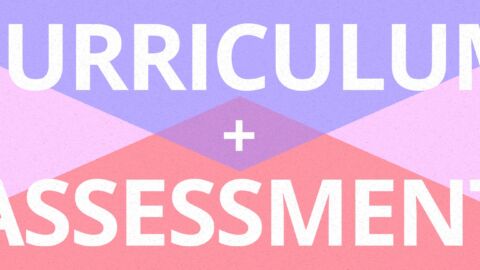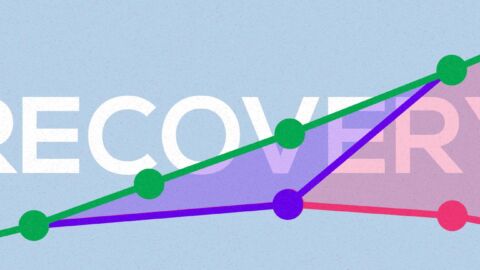Nathan Dadey is interested in the design, scaling, and use of educational assessments, particularly assessments used for accountability purposes. He aims to produce methodological and applied work that contributes to improved understanding and use of assessment results in policy contexts.
In terms of methodological work, Nathan focuses on tackling issues in which typical educational measurement approaches fall short. One such area is the measurement of the Next Generation Science Standards (NGSS). For example, Nathan has supported multiple state departments of education (Delaware, Wisconsin, and Nebraska) in developing conceptualizations of their NGSS statewide systems of assessments, leading content specialists in the creation of three dimensional tasks, assisting multiple SCASS groups within the Council of Chief State School Officers and reviewing NGSS performance task quality and evaluation tools (with Achieve). A second area deals with the numerous challenges inherent in designing and implementing comprehensive systems of assessment. While working to tackling these kinds of challenges, Nathan has explored ways in which a set of “mini-interim” assessments can be scaled (with Curriculum Associates), written a policy brief addressing ESSA’s interim assessment provision and explored ways in which Bayesian networks can be used to summarize interim and summative assessment results.
In terms of applied work, Nathan focuses on issues that threaten the validity of assessment and accountability operational programs. These issues include the dimensionality of alternate assessment based on alternate achievement standards (on behalf of NCSC), the impact of interruptions on online assessment results (on behalf of the Smarter Balanced Assessment Consortia) as well as recommendations to address such impacts (on behalf of CCSSO), the representation of English Language Proficiency within state accountability systems (on behalf of the Latino Policy Forum), and the comparability of assessment scores across multiple digital devices (on behalf of the TILSA SCASS).
Nathan received a Ph.D. from the University of Colorado Boulder with a concentration in research and evaluation methodology.
Nathan Dadey focuses on using psychometric and statistical methods to address practical problems, including issues related to combining interim assessment data, dimensionality of alternative assessments, subscores, and vertical scales.
Recent and Relevant Publications
Dadey, N., Evans, C. M., & Lorié, W. (2023). Through-year assessment: Ten key considerations. The National Center for the Improvement of Educational Assessment.
Dadey, N., Lyons, S., & DePascale, C. (2018). The comparability of scores from different digital devices: A literature review and synthesis with recommendations for practice. Applied Measurement in Education, 31(1), 30-50.
Briggs, D. C., & Dadey, N. (2017). Principal holistic judgments and high-stakes evaluations of teachers. Educational Assessment, Evaluation and Accountability, 29(2), 155-178. https://doi.org/10.1007/s11092-016-9256-7
Dadey, N. & Gong, B. (2017, April). Using interim assessments in place of summative assessments? Consideration of an ESSA option. Washington, DC: Council of Chief State School Officers (CCSSO).
Lyons, S. & Dadey, N. (2017, March). Considering English Language Proficiency within Systems of Educational Accountability under the Every Student Succeeds Act. Dover, NH: The National Center for the Improvement of Educational Assessment, Inc., & The Latino Policy Forum.
Briggs, D. C., & Dadey, N. (2015). Making sense of common test items that do not get easier over time: Implications for vertical scale designs. Educational Assessment, 20(1), 1-22.
Dadey, N. & Briggs, D. C. (2012). A meta-analysis of growth trends from vertically scaled assessments. Practical Assessment, Research & Evaluation, 17(14).
Blog Posts Authored by Nathan Dadey

Peer Review: Can Emerging Programs Meet the Requirements?
Through-year and other novel test designs face challenges in peer review. Three changes by the U.S. Department of Education could improve the process.
Read More
Through-Year Assessment: A Radical Renegotiation of the School Accountability Contract
Many states are considering replacing their year-end tests with through-year assessments. But this change would impact states’ implicit accountability contracts with schools.
Read More
Slow the Flow of Your RFPs
Advancing educational assessment, like through-year assessment programs, can be supported by changes to the RFP process.
Read More
In Search of the “Just Right” Connection Between Curriculum and Assessment
Considering Options Between Curriculum-Specific and Curriculum-Agnostic State Assessment State summative assessments are intentionally designed to be curriculum-agnostic. The design of these state assessments ignores the various instructional materials and other […]
Read More
Comparisons Matter: Considering What Recovery Is
Now is the Time to Begin Preparing for the Reporting of Spring 2022 Assessment Results The question about the pandemic impact has largely been answered – it’s bad (e.g., Betebenner et […]
Read More
Assessing the Academic Impact of COVID-19 on Summer 2021 Summative Assessments
Data from the Spring 2021 Summative Assessments Enhances Our Understanding of the Impact of the Pandemic As we approach 18 months into the COVID-19 pandemic, evidence regarding the academic impact […]
Read More
2021 Summer Internships: The Future Is Now
Center Staff and Interns Look Toward the Future of Educational Assessment and Accountability As it appears the country is finally turning the corner on the pandemic, we are excited at […]
Read More
Including Missing Data in the Estimate of the Impact of the Pandemic on Student Learning
Part 3: The Practical Implications of COVID-19 Learning Loss Studies It has been a year since COVID-19 made it impossible for states to administer state assessment programs last spring. Since […]
Read More
Making Use of Missing Data to Plan Interventions for Recovery
Part 2: The Practical Implications of COVID-19 Learning Loss Studies It has been a year since COVID-19 made it impossible for states to administer state assessment programs last spring. Since […]
Read More
Making Sense of Recent COVID-19 Impact Studies by Interim Assessment Vendors
Part 1: The Practical Implications of COVID-19 “Learning Loss” Studies It has been a year since COVID-19 made it impossible for states to administer state assessment programs last spring. Since […]
Read More
State Testing in 2021: Messaging Matters More than Ever
How Can We Best Communicate Results From State Testing Given the Challenges of Learning in a Pandemic? Even as discussions continue about the merits of state testing in 2021, the […]
Read More
Test Score Meaning Under Remote Test Administration (Part 2)
Mode or Accommodation? A Framework for Thinking about How Remote Administration Impacts Test Score Meaning This is the second of two posts on planning for the examination of the validity […]
Read More
What’s Even Going On?
Collecting Data on Student Experiences to Understand Student Learning in Light of COVID-19 As the school year gets underway, one question on everyone’s mind is: What impact will all of […]
Read More
A Deep Dive into Summative Classroom Assessment in a Remote or Hybrid Learning Environment (Part 2)
What’s the Same and What’s Different about Classroom Assessment in 2020-2021? Those responsible for summative classroom assessment in 2020-2021 face a number of daunting challenges, not the least of which […]
Read More
A Deep Dive into Formative Assessment in a Remote or Hybrid Learning Environment (Part 1)
What’s the Same and What’s Different about Classroom Assessment in 2020-2021? As school restarts this fall, many teachers and students are facing different learning environments than the typical back-to-school realities […]
Read More
2020 Summer Internships: A Little More Certainty in an Uncertain Future
Center Staff and Interns Will Address Pressing Issues in Educational Assessment and Accountability Although so much about the future seems uncertain, we are excited this month to bring a little […]
Read More
Considering Equity Within Accountability Systems in Response to Interruptions in Schooling: Making Accountability Systems Help
Identifying and Providing Compensatory Support to Groups of Students Most Impacted by Disruptions to Their Schooling Right now, the focus of parents and educators is, rightly, on keeping students safe. […]
Read More
Assessment Dashboards, Reports, and Open Analytics
Supporting State Department of Education Staff with Internal Decision Making The results of educational assessments have never been more visible. Over the past 20 years, the reporting of state assessment […]
Read More